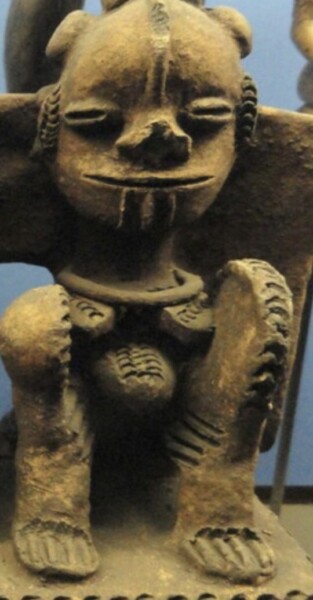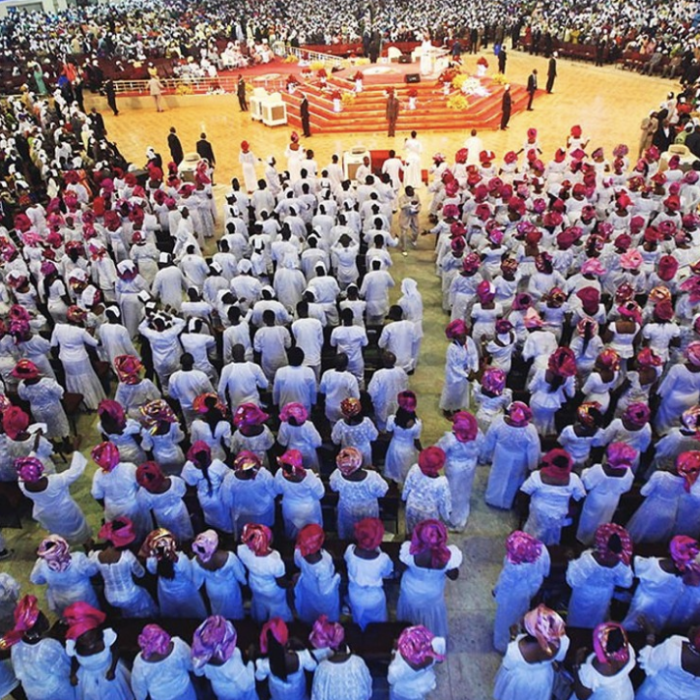By Nnaoke Ufere, PhD
Ututu, founded by Otutu Ezema, has a rich cultural history that predates the arrival of Christianity. Our ancestral deities, Obasi Ututu and Offor Ututu, existed long before the introduction of Christianity to our community. It is important to recognize and respect the belief system of our ancestors, who regarded all objects as possessing supernatural aspects.
Their worldview acknowledged the presence of supernatural forces within their environment. This understanding was deeply rooted in their intimate knowledge of the natural world. The supernatural forces embodied by Obasi Ututu, Offor Ututu, and other deities were ultimately creations of the same God worshiped by Christians.
For many years, Ututu indigenous heritage coexisted harmoniously alongside Christianity in Ututu, until recently.
What sets our indigenous heritage apart is its distinctive approach to creating a fair and just society, one that emphasized the equitable treatment of individuals who committed crimes and their subsequent reintegration into the community. Furthermore, it provided a means to resolve land disputes and interclan conflicts without perpetuating further harm.
Our traditional system of justice operated more effectively and efficiently than the present corrupt system. As such, the indigenous social order of Ututu offered a functional model of restorative justice, exemplifying how communities could come together to repair social relationships through spiritual offerings.
Therefore, our indigenous institutions, social interactions, and customary practices served to regulate relationships between clans and individuals, thereby maintaining law and order.
However, several years back, a group of fanatical Christians, along with their overzealous collaborators, committed acts of desecration, looting, and destruction upon our sacred indigenous shrines, oracles, ancestral artifacts, and deities. Their misguided mission was to re-evangelize Ututu, claiming to free its people from what they unjustly labeled as the confines of ancestral, satanic worship.
This article examines the aftermath of this cultural desecration and proposes ways to restore, protect, and preserve Ututu shrines, oracles, deities, and diviners.
The perpetrators, led by Rev. Nlenanya Onwu from Ututu and Rev. Uma Ukpai from Ohafia, acted without consulting or informing the majority of Ututu people, catching the community of traditionalists off guard. Their actions demonstrated a reckless disregard for the public interest, neglecting both their duty to preserve Ututu ancestral heritage and their responsibility towards the Ututu people at large.
The acts committed by these extremists include desecrating Ihu Izu or Ofia Izu, the gravesite of Otutu Ezema, Ututu founder, which holds immense cultural significance; demolishing Anyunku Ukwuakwu, a revered oracle that protected the people; defiling Opia Ututu, a highly venerated oracular artifact; and debasing Obasi Ututu and the Offor Ututu, our most sacred deity and the Ututu Ark of the Covenant, which symbolizes power, peace, and rulership.
A critical question arises after a decade of living without the shrines, oracles, deities, and diviners: has Ututu experienced any improvement as a result of this desecration? Regrettably, the answer is a resounding “No.” In fact, Ututu finds itself in a worse state today.
To honor our ancestors and rectify the cultural damage inflicted upon Ututu, it is essential to embark on a journey of atonement, restoration, protection, and preservation.
Across the globe, spanning from the Americas to Europe, and from Africa to Asia, nations and communities diligently safeguard their rich indigenous heritage.
In close proximity, communities such as Arochukwu, Ohafia, and Abririba proudly uphold and protect their sacred deities, shrines, and ancestral artifacts. We must acknowledge that our commitment to Christianity does not make us superior to them.
Even those who introduced Christianity to us recognize the significance of safeguarding their own deities and ancestral artifacts. A striking example of this is the recent coronation of King Charles, the leader of the Church of England, where the ceremonial employment of the Stone of Scone, also known as the Stone of Destiny, demonstrated the coexistence of Christianity and indigenous traditions.
This indigenous artifact hails from Scotland, serving as a testament to the harmonious blending of these diverse cultural practices.
Way Forward:
To ensure the preservation and protection of our indigenous heritage, I am establishing the Ututu Indigenous Heritage Museum (UIHM). The primary objective of this initiative is to identify, archive, restore, protect, and preserve our indigenous artifacts, shrines, oracles, deities, and diviner practices. The UIHM will serve as a bridge connecting generations of Ututu people to their heritage, culture, and the essence of their identity.
As the custodian of Ututu indigenous civilization, the museum will take on the responsibility of legally safeguarding all sacred sites on behalf of the Ututu people. It will serve as the guardian and storyteller of our shrines, oracles, and other holy places, preserving the memories and ancient traditions that define our culture.
It is imperative that we secure all holy sites and establish commemorative memorials to honor the oracular traditions that were once practiced there. These monuments will serve as a lasting legacy, reminding future generations of the existence and significance of sites such as Anyunku Ukwuakwu.
Notably, the most sacred spot in Ututu, the gravesite of Otutu Ezema, known as Ihu Izu or Ofia Izu, will be prominently featured. Furthermore, the cultural artifacts Opia (sacred sword) and the deities Obasi Ututu and Offor Ututu (Ututu Ark of Covenant), which embody power, peace, and rulership, will be given due recognition.
To ensure widespread knowledge and understanding of Ututu’s indigenous culture, we will develop an Indigenous Edutech platform and incorporate Ututu Indigenous culture into school curricula pending state approval. This will allow schoolchildren to learn about our unique culture, traditions, and ancestral heritage.
Embracing the digital era, we will digitize Ututu indigenous practices, oral history, and artifacts, creating a comprehensive digital inventory and documentation for future generations to explore and connect with their origins.
By combining our indigenous knowledge with modern science, technology, and education, we can envision a future where every Ututu individual can take pride in their ancestors and the traditions upon which our modern Ututu identity is built.
Furthermore, we will commission and publish a comprehensive historical account detailing the origins, civilization, and indigenous traditions and practices of Ututu. This publication will serve as an authoritative resource and contribute to the preservation and dissemination of our cultural heritage.
If you share my passion and dedication, I invite you to join the UIHM coalition. Together, we can work towards the restoration and preservation of Ututu indigenous heritage, ensuring that our cultural destiny is secured for future generations.






excellent. Well written.